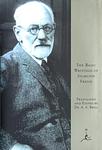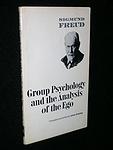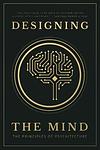The Greatest "Vienna, Psychological" Books of All Time
Click to learn how this list is calculated.
This list represents a comprehensive and trusted collection of the greatest books. Developed through a specialized algorithm, it brings together 300 'best of' book lists to form a definitive guide to the world's most acclaimed books. For those interested in how these books are chosen, additional details can be found on the rankings page.
Genres
The Psychological genre of books typically explores the inner workings of the human mind and emotions, often delving into complex and sometimes disturbing psychological states. These books may focus on mental illness, trauma, relationships, or personal growth, and often challenge readers to confront their own beliefs and perceptions. Psychological books may be suspenseful, thought-provoking, and emotionally intense, offering readers a deep and often unsettling glimpse into the human psyche.
Countries
Date Range
Reading Statistics
Click the button below to see how many of these books you've read!
Download
If you're interested in downloading this list as a CSV file for use in a spreadsheet application, you can easily do so by clicking the button below. Please note that to ensure a manageable file size and faster download, the CSV will include details for only the first 500 books.
Download-
1. The Royal Game by Stefan Zweig
"The Royal Game" is a gripping novella about a man who, while in solitary confinement by the Nazis, steals a book of past chess games and plays them all in his mind to keep his sanity. Once freed, he becomes a chess master but his mental state is fragile. On a cruise ship, he is challenged to a game by the reigning world champion, leading to a psychological battle that pushes him to the brink of madness.
-
2. The Piano Teacher by Elfriede Jelinek
"The Piano Teacher" is a dark exploration of power dynamics, sexuality, and repression. The story revolves around a piano teacher at a prestigious music school in Vienna who lives with her overbearing mother in a state of emotional and sexual repression. Her life takes a turn when she becomes sexually involved with a young, self-assured student. The relationship, marked by sadomasochistic games and emotional manipulation, spirals out of control, leading to a tragic end. The book is a profound critique of bourgeois values and the oppressive structures of society.
-
3. Civilization and Its Discontents by Sigmund Freud
This book is a seminal work in the field of psychology, exploring the inherent tension between civilization and the individual. The author, a famed psychologist, argues that civilization's imposition of societal norms and restrictions leads to individual unhappiness and discontent. He delves into the conflict between the human desire for freedom and society's need for order, suggesting that this tension is at the root of much human suffering. The book further explores concepts such as the super-ego, guilt, and the death drive, offering profound insights into the human psyche.
-
4. Three Essays on the Theory of Sexuality by Sigmund Freud
This book is a seminal work that presents the author's theories on human sexuality, including his concept of sexual development through psychosexual stages. It explores topics such as the sexual aberrations, infantile sexuality, and the transformation of puberty. The author argues that sexual drive is present from birth, and that children go through several stages of sexual development. He also discusses the idea of sexual perversions and their origins. This book is considered a foundational text in the field of psychoanalysis.
-
5. Concrete by Thomas Bernhard
The book is a darkly introspective narrative that delves into the mind of a reclusive, obsessive intellectual who is struggling to complete his scholarly work on the composer Mendelssohn. As he grapples with his own ailments and the perceived mediocrity of his surroundings, the protagonist's stream-of-consciousness monologue reveals his deep-seated anxieties, self-loathing, and profound isolation. The narrative is a relentless examination of the protagonist's psyche, showcasing his critical view of society and his own personal relationships, which are fraught with tension and dysfunction. Through this, the novel explores themes of artistic creation, intellectual elitism, and the suffocating nature of expectations and familial obligations.
-
6. Woodcutters by Thomas Bernhard
Woodcutters is a darkly humorous critique of Vienna's artistic elite. The story takes place over the course of a single evening, as the narrator attends a dinner party in honor of a recently successful actor. As the evening progresses, he reflects on the pretentiousness and hypocrisy of the guests, the mediocrity of their artistic achievements, and the tragic suicide of his former lover. The novel is a scathing indictment of the vanity and self-delusion of the artistic community.
-
7. Confusion by Stefan Zweig
"Confusion" is a compelling narrative that explores the intense and passionate relationship between a student and his charismatic professor. Set in the early 20th century, the story unfolds as the protagonist becomes entangled in the professor's personal life, discovering his mentor's secret past, his struggling marriage, and his hidden homosexual desires. The book presents a profound exploration of human emotions, identity, and the complexities of love, against the backdrop of the societal norms of the time.
-
8. Beware Of Pity by Stefan Zweig
The novel explores the complex emotions and consequences that arise when a young lieutenant, succumbing to societal pressure, feigns romantic interest in a disabled young woman. His pity-driven actions lead to an entanglement of obligation, guilt, and false hope, ultimately culminating in a tragic series of events. Set against the backdrop of the Austro-Hungarian Empire on the brink of World War I, the story delves into the psychological depths of its characters, examining the moral dilemmas and the devastating impact of pity when it is mistaken for love.
-
9. Traumnovelle by Arthur Schnitzler
The narrative delves into the psyche of a Viennese doctor who, after his wife confesses to having sexual fantasies about another man, embarks on a nocturnal journey of sexual and moral discovery. His odyssey leads him through a series of increasingly surreal and erotic encounters, culminating in a secret masquerade ball that exposes the darker side of human desire and the complexities of the human soul. The story explores themes of jealousy, fidelity, and the boundaries between reality and dreams, ultimately questioning the very nature of human identity and the masks people wear in society.
-
10. The Psychopathology Of Everyday Life by Sigmund Freud
The book explores the psychological underpinnings of seemingly trivial mistakes and forgetfulness in everyday life, such as slips of the tongue (often referred to as Freudian slips), forgetting names or words, and misplacing objects. The author argues that these errors are not mere accidents but rather manifestations of unconscious thoughts and desires that reveal much about the workings of the human mind. Through a series of engaging anecdotes and case studies, the book delves into the ways in which the subconscious mind influences behavior and sheds light on the deeper layers of human psychology that influence everyday actions and interactions.
-
11. The Loser by Thomas Bernhard
"The Loser" is a philosophical novel that revolves around the complex relationship between three friends who are all piano virtuosos. The narrative is driven by the protagonist's obsession with his friend's suicide, which he believes was triggered by the realization that they could never surpass the genius of their third friend. The book delves into the protagonist's psyche as he grapples with themes of talent, ambition, failure, and the destructive power of comparison.
-
12. Group Psychology and the Analysis of the Ego by Sigmund Freud
This book delves into the exploration of group dynamics and mass psychology. The author, a renowned psychologist, theorizes about the nature of groups, how they form, and how individuals within them behave. He also explores the concept of the 'ego' and its role within these group dynamics. The book provides a comprehensive analysis of group psychology, focusing on aspects such as leadership, suggestion and contagion, and the relationship between individual and group mind. It's a significant contribution to the understanding of mass movements and crowd behavior.
-
13. Thoughts for the Times on War and Death by Sigmund Freud
This book is a profound exploration of the psychological impact of war and death on the human psyche. The author, a renowned psychologist, delves into the collective guilt and anxiety experienced by society during wartime, and the denial of death's inevitability as a self-preserving mechanism. He also discusses the disillusionment that arises when the veneer of civilization is stripped away, revealing the primal instincts beneath. The book is a deep, philosophical discussion about the human condition, morality, and the psychological consequences of war and death.
Reading Statistics
Click the button below to see how many of these books you've read!
Download
If you're interested in downloading this list as a CSV file for use in a spreadsheet application, you can easily do so by clicking the button below. Please note that to ensure a manageable file size and faster download, the CSV will include details for only the first 500 books.
Download











